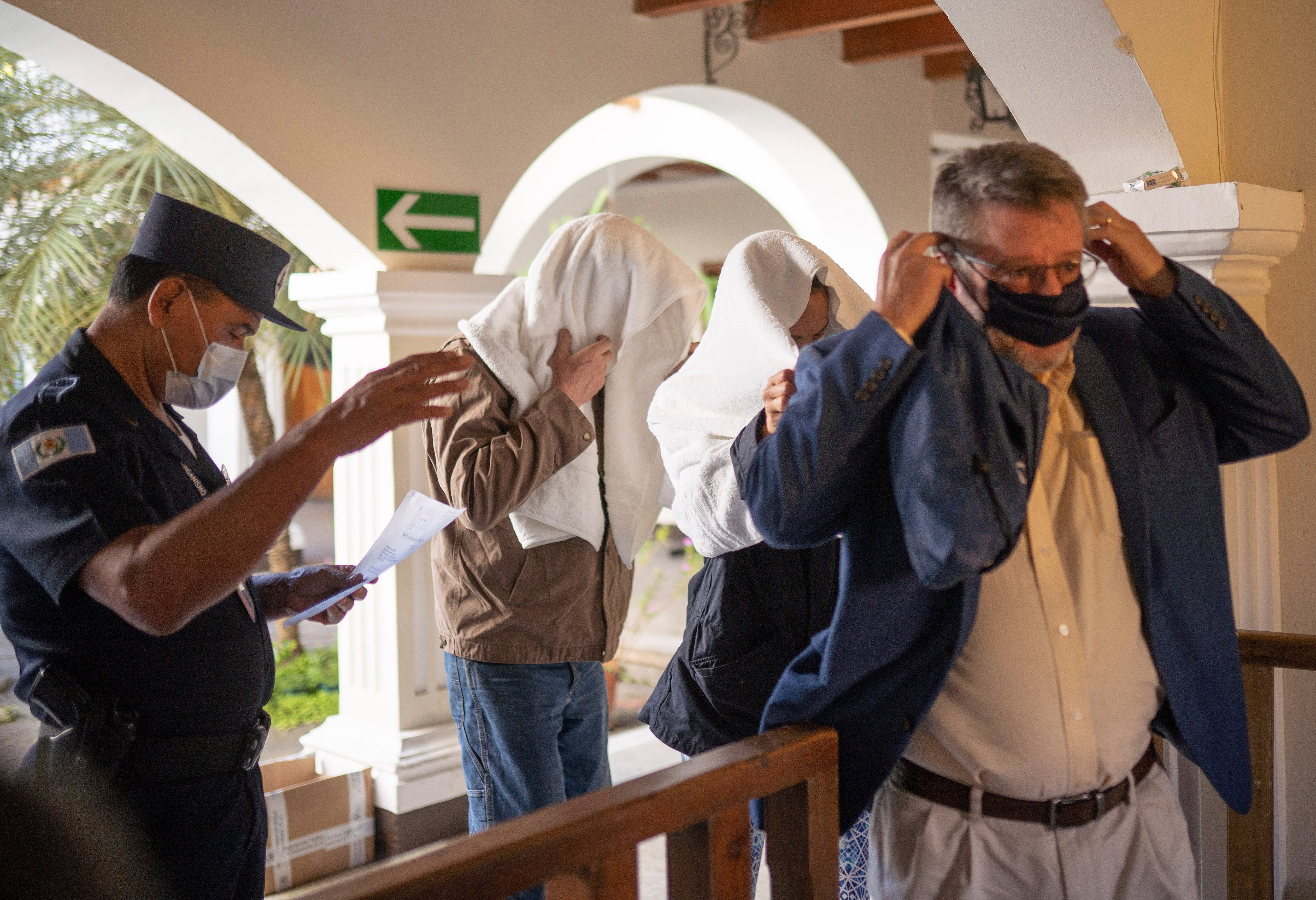Guatemala finds over 1,000 artifacts at Americans' home
Prosecutors in Guatemala say they have found 1,222 possible archeological artefacts at the home of an American couple accused of smuggling historical relics

Your support helps us to tell the story
From reproductive rights to climate change to Big Tech, The Independent is on the ground when the story is developing. Whether it's investigating the financials of Elon Musk's pro-Trump PAC or producing our latest documentary, 'The A Word', which shines a light on the American women fighting for reproductive rights, we know how important it is to parse out the facts from the messaging.
At such a critical moment in US history, we need reporters on the ground. Your donation allows us to keep sending journalists to speak to both sides of the story.
The Independent is trusted by Americans across the entire political spectrum. And unlike many other quality news outlets, we choose not to lock Americans out of our reporting and analysis with paywalls. We believe quality journalism should be available to everyone, paid for by those who can afford it.
Your support makes all the difference.Prosecutors in Guatemala said Thursday they have found 1,222 possible archeological artefacts at the home of an American couple accused of smuggling historical relics.
The apparently pre-Hispanic pieces found in a 12-hour inspection of the house in the tourist town of Antigua range from large stone carvings to small pottery pieces.
The prosecutors office said in a statement that the raid on the home “represents a tough blow to a presumed ring dedicated to illegally trafficking cultural goods.”
The special prosecutors office for cultural legacy said the pieces found include stone items made of jade and basalt, and said the pieces had been turned over to an office of the Culture Ministry for examination.
The authenticity of the artefacts may be a key part of the case.
Photographer and designer Stephanie Allison Jolluck — who was detained last week after trying to fly out of Guatemala with two stone carvings were made between 600 and 900 A.D. — has said she bought those items at a market, believing they were souvenirs.
Jolluck and her American companion, Giorgio Salvador Rossilli, live in the tourist town of Antigua, just outside Guatemala City.
Jolluck was released on her own recognizance after her arrest at the airport because she was a long-term resident of Guatemala. But she and Rossilli were detained again Sunday when they were found with 166 Mayan artifacts in their vehicle.
After police pulled them over, Rossilli apparently argued ignorance. Prosecutor Jorge Alberto de León said the couple told a judge they thought the artifacts were cheap reproductions.
“They argued that, because they are foreigners, they cannot tell one piece from another,” de León said. “They told the judge that because they were pieces of stone they had seen sold at the markets, they never imagined that they were ancient archeological pieces.”
Rossilli is listed as an author of a two-volume work on the “Masks of Guatemalan Traditional Dances” and was credited as one of the curators of Los Angeles art exhibitions of pre-Hispanic artifacts several years ago.
Guatemala’s Culture Ministry says that 90% of the 166 artifacts — mostly stone carvings — found in the couple’s vehicle are authentic. People smuggling relics and archaeological artifacts face between 5 and 10 years in jail if convicted in Guatemala.
De León said Rossilli also argued the pieces weren’t his, and that he had been given them by someone else to restore, and that he was returning them when he was detained.
On Monday, Judge Sherly Figueroa released both Jolluck and Rossilli on bail of about $6,400 apiece and allowed them to keep their passports but prohibited them from leaving the country. They will be required to show up at prosecutors’ offices every two weeks as their case continues.
Jolluck’s lawyer, Juan Carlos Velasquez, refused to discuss the case with journalists, saying “I am not authorized to talk about this case, which is quite sensitive.”
Subscribe to Independent Premium to bookmark this article
Want to bookmark your favourite articles and stories to read or reference later? Start your Independent Premium subscription today.